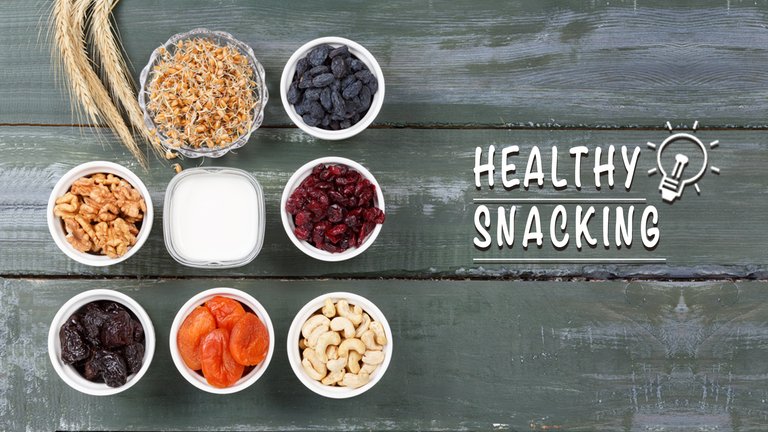
Is snacking healthy?
You are aware of snacking, right? Do you know if its good or bad for you? There are actually both good and bad opinion about snacking. According to some snacking is healthy and it improves your metabolism, whereas others think that snacking is not healthy and can make to gain weight. Let's have a detailed look at the effects of snacking on your health along with the benefits that it has to offer.
What is snacking?
Snacking is the act of consuming food in between regular meals. The term ‘snack-foods' is used for foods that are either processed or consists of high-calories. Some example includes chips, cookies and cake. Snacking simply refers to eating or drinking something irrespective of the healthy quotient of the food or drink. The main motivation behind the concept of snacking is hunger. However, some other factors include social environment, food, time and location. People can even consume food even if they are not hungry.
When a few obese and overweight people were asked the reason behind their choice of unhealthy snacks, the most response included temptation that was mainly followed by low energy and being hungry. The desire to snack and its effect is based on the individual. The factors included in snacking are the belief about it being healthy or not and the age.
Is the Metabolism boosted?
According to common belief, eating every alternate hour can boost the metabolism. However, there is no evidence to support it. Studies have not found any significant effect of snacking on the calories burnt. In another study, it has been found that obese people with a low-calorie diet, has shown a decrease in the metabolic rate irrespective of the fact if they ate lower calorie meals throughout the day. To our surprise, a bedtime snack might show a higher metabolic rate in the next morning. This study was conducted on young men and they consumed either high-carb or high-protein snack before the bedtime. This increase in metabolism can be expected with the assurance that the calorie is burned overnight.
Effect on appetite and weight:
The effect of appetite and food is not universally agreed upon. According to a report, snacking might help in satisfying hunger as well as promote the feeling of fullness but the calories consumed are not compensated at the next meal. This can ultimately result in increased calorie intake. For example, people who consumed 200-calorie snack after having breakfast ended up consuming 100 fewer calories at lunch. This ultimately implies that there has been an increase in 100 calories overall.
Another study was conducted on lean men, who consumed either three main meals that are composed of high-fat or high-carb snacks. The total calorie intake and the hunger level did not change much. In some studies, it has been seen that snacking has definitely helped in reducing hunger. Based on such difference in results, the effect of snacking is, therefore, dependant on the individual and the type of snack that is being consumed.
According to most of the research, the habit of snacking does not have an effect on weight. On the contrary, some other studies of snacking shows that it might be helpful in losing weight. When a non-controlled study is examined, it has been seen that people with diabetes showed a weight loss of 2.2 pounds (1kg) when they consumed snacks that are high in protein. On the other hand, snacking showed slower weight loss and even weight gain for lean and obese people. Therefore, it is needless to say that the mixed result is based on individuals.
Effect on blood sugar:
According to popular belief eating frequently is necessary to maintain blood sugar level throughout the day but this might not be the case always. In a study of people with type 2 diabetes, it has been found that consuming only 2 meals per day have resulted in lower blood sugar levels with better insulin sensitivity. This was mostly dependant on the type of snack that is consumed as the snack that has a high protein content, improves blood sugar.
Does snacking prevent hunger?
By now, we have understood that snacking might not be beneficial for everybody. However, this process can definitely help in preventing people from becoming too hungry. When a person is hungry for a longer period of time then they may consume more calories than required. However, healthy snack choices must always be opted for.
Tips for healthy snacking:
Check out the following guidelines to ensure that you are getting the most out of your snacks.
- Amount: 200 calories and 10 grams of protein are ideal.
- Portability: portable snacks come in handy when you are travelling.
- Frequency: This is based on your level of activity. When you are very active then 2-3 snacks per day is ideal.
Always avoid snacks that are processed or are high in sugar content. You will end up feeling hungrier after some time. You may opt for cottage cheese or hard-boiled eggs as they are ideal to make you feel full for a longer amount of time. The snacks that are high in fibre such as almonds and peanuts can also reduce your appetite along with the amount of food that you consume in the next meal. Some other healthy snack can also be string cheese, fresh vegetable slices and sunflower seeds. For more such health-related articles, do visit our website.
Hi! I am a robot. I just upvoted you! I found similar content that readers might be interested in:
https://www.healthline.com/nutrition/snacking-good-or-bad
I upvoted your post.
Best regards,
@Council
Posted using https://Steeming.com condenser site.
Thanks!